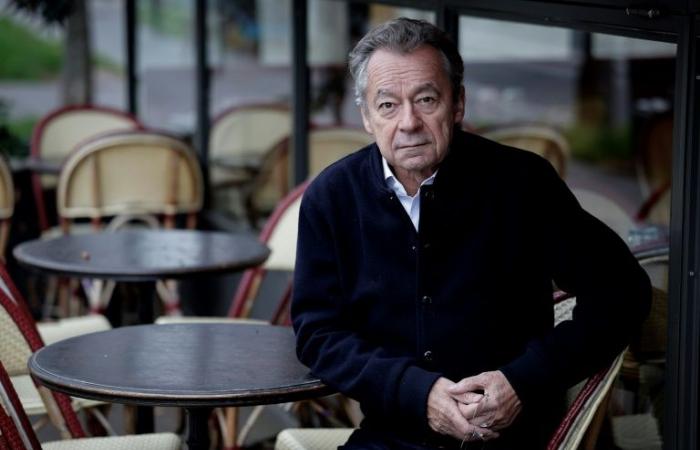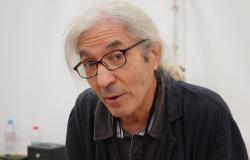Canal+ is celebrating its 40th anniversary and Michel Denisot, flagship host, lived through the first 30, seeing unknowns arrive, like Omar Sy or Louise Bourgoin, these “Canal+ babies”, who have now become “half of French cinema”.
He questions the talents revealed by C+ in his book “Very first time” (Flammarion) and opens his memory box of the encrypted channel for AFP.
Q: How did you get to Canal+?
A: “It was Pierre Lescure (one of the historical managers of C+, Editor’s note) who called me in the spring of 1984. I was at TF1 at the time. I had known Pierre before, at RMC. We had affinities and kept a link. He first called Alain De Greef (another future pillar of the channel, Editor’s note), then I didn’t think twice. from TF1 at the time, Hervé Bourges told me that I was making the ‘mistake of my life’.
Q: Why take this plunge into the unknown?
A: “It was the channel of my generation. Pierre Lescure, we are the same age, Charles Biétry (C+ sports figure, Editor’s note) about the same. We were approaching forty, we said to ourselves, + What do we do? Do we stay where we are or do we take a chance?+.
Q: How was Canal+ received at the beginning?
A: “There were only three channels before. Everything was settled. It was the politicians who managed television a bit. Now, it’s money. So, Canal is the first private channel to start, paying We are condemned from the start by a large part of the press: France-Soir title +Canal+, it’s already a failure+ They could have been right. I started in a TV morning show, the first in France. was called +Le 7/9+ and I commented on football matches in the evening. However, after six months, Canal+ didn’t work. And then it took off. great to find yourself with a blank page, without market studies If there had been any, Canal+ would perhaps never have existed.
Q: How does Canal+ end up being associated with a moment in the collective imagination at the Cannes Film Festival?
A: “At the beginning, I did the show +Zénith+, at the edge of a hotel swimming pool, with three chairs, with Coluche. The Croisette was deserted during the Festival at that time, we rode scooters without helmets It started like this: when we do Cannes, we live in a blockbuster for 15 days. We are in the same hotel as the people from the cinema, at the same restaurant, we go for a drink in the same nightclub, we. has breakfast next door. The director Wim Wenders told me +I meet you every year here, in the hotel elevator at 2:00 a.m., it’s funny+. “I was identified.”
Q: What was the recipe for success at Canal+ when you were starting out, unknown, like Omar Sy?
A: “I was there at the beginning, for 30 years I saw them all happen. You have to be a little obsessed with your work, a little excessively, to succeed.
Everyone who started with me, Marc-Olivier Fogiel, Jean-Luc Delarue, Yann Barthès, Christophe Dechavanne, initially did one-minute sequences. They arrived in the morning at 8:30 a.m., they left in the evening at 9:00 p.m. The minute they did, they saw her again, twisted her again. The girls who did the weather forecast (like Louise Bourgoin, Editor’s note), it’s the same, they worked a lot all day.
The Canal+ babies in my book are now half of French cinema. Michel Hazanavicius started at Canal by making small montages and hijacking images. And later he won Oscars in Hollywood for +The artist+”.
Q: What do you think of Canal+ today?
A: “I watch Formula 1 there. The production is fantastic and there is the talent of the commentators, it’s really great. I also watch the films. But now, Canal has become above all a platform. We It was a chain. It’s not the same thing.”
pgr/may/mpm






